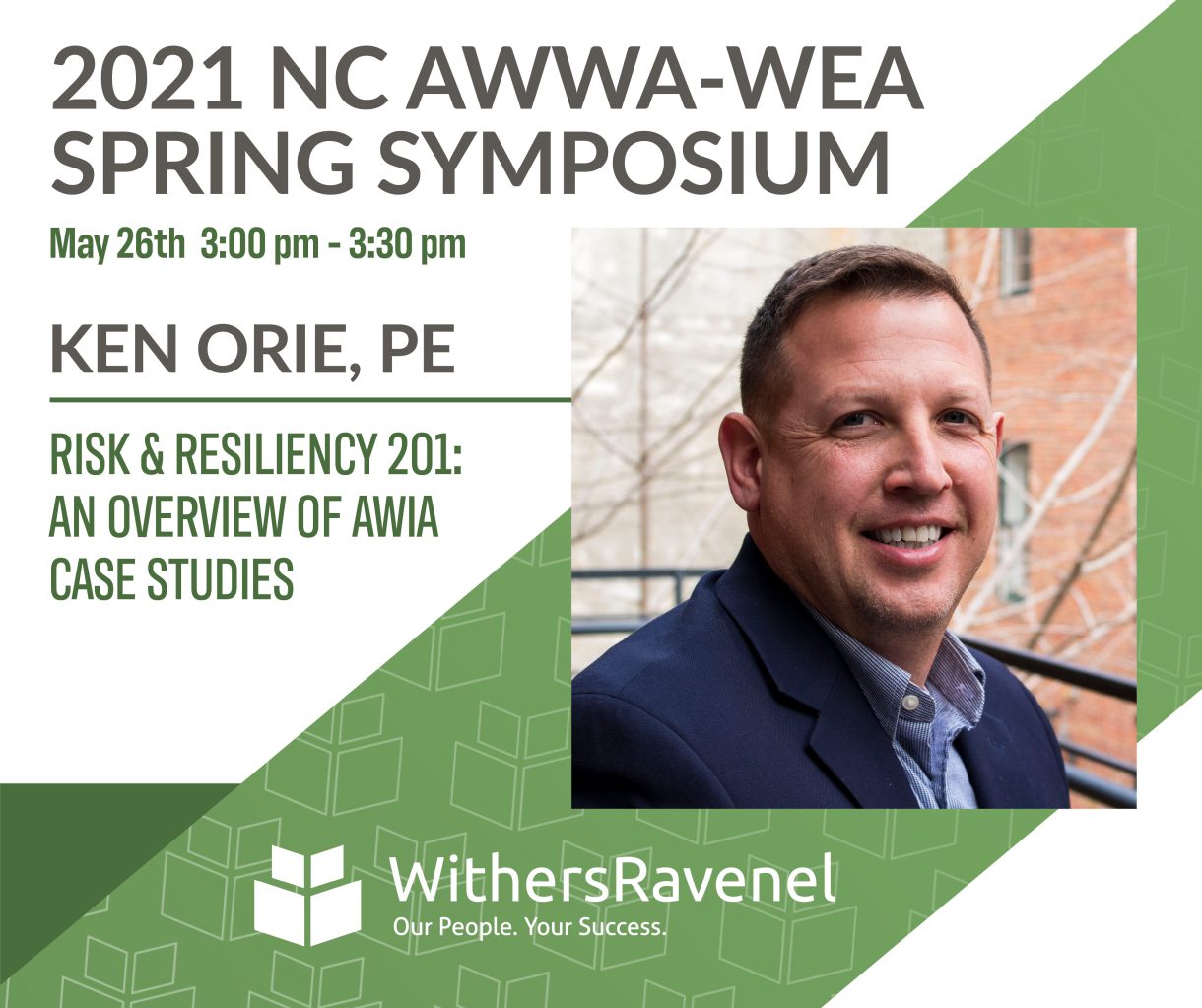
A frightening February incident in a Florida city illustrates how important it is for water systems to assess their level of risk and resiliency and develop emergency response plans. The occurrence shines a spotlight on drinking water security and safety, which WithersRavenel is working on with communities across the state.
Cyberhackers briefly compromised the water system in Oldsmar, Florida, outside of Tampa. The hackers used a remote operational account to access chemicals in the system and increase lye levels from 100 to 11,100 parts per million. At that level, lye can lead to short-term problems such as nausea or vomiting but can also cause damage to the gastrointestinal (GI) tract.
The plant does have backup systems in place to measure chemical levels, but that didn’t stop the hackers from taking this initial step. Remote operations are common for water systems, particularly in smaller locales that don’t have staff or experts on site throughout the day, seven days a week.
With potential hacking, natural disasters, and terrorist threats to the U.S. water supply in mind, America’s Water Infrastructure Act (AWIA) was signed into law in 2018. The law requires community (drinking) water systems serving more than 3,300 people to develop or update risk assessments and emergency response plans (ERPs). The law specifies the components that the risk assessments and ERPs must address and establishes deadlines by which water systems must certify to EPA completion of the risk assessment and ERP.”
Ken’s presentation, Risk & Resiliency 201: An Overview of AWIA Case Studies, will review AWIA objectives, the standard process for AWWA J100-10(R13) Risk & Resilience Management of Water and Wastewater Systems, and what communities are doing to improve their system’s capacity to survive, adapt, and grow despite the effects of unforeseen forces such as heavy flooding, vandalism, or major equipment failure.
Ken Orie, PE is the Director of Engineering for the Utilities team. He has extensive experience in water and wastewater treatment and conveyance, wet weather planning, SCADA system design and implementation, rehabilitation, hydrology, hydraulic modeling, regulations and all aspects of water resource engineering. He is nationally known for his experience in flow metering (open channel and closed conduit), hydraulic modeling development and analysis, and CSO/SSO compliance. He is passionate about helping municipalities evaluate the most cost-effective means to comply with regulations.
This preview is part of our AWWA Speaker Preview series, which highlights the WithersRavenel staff invited to speak at the 2021 NC AWWA-WEA Spring Symposium.
